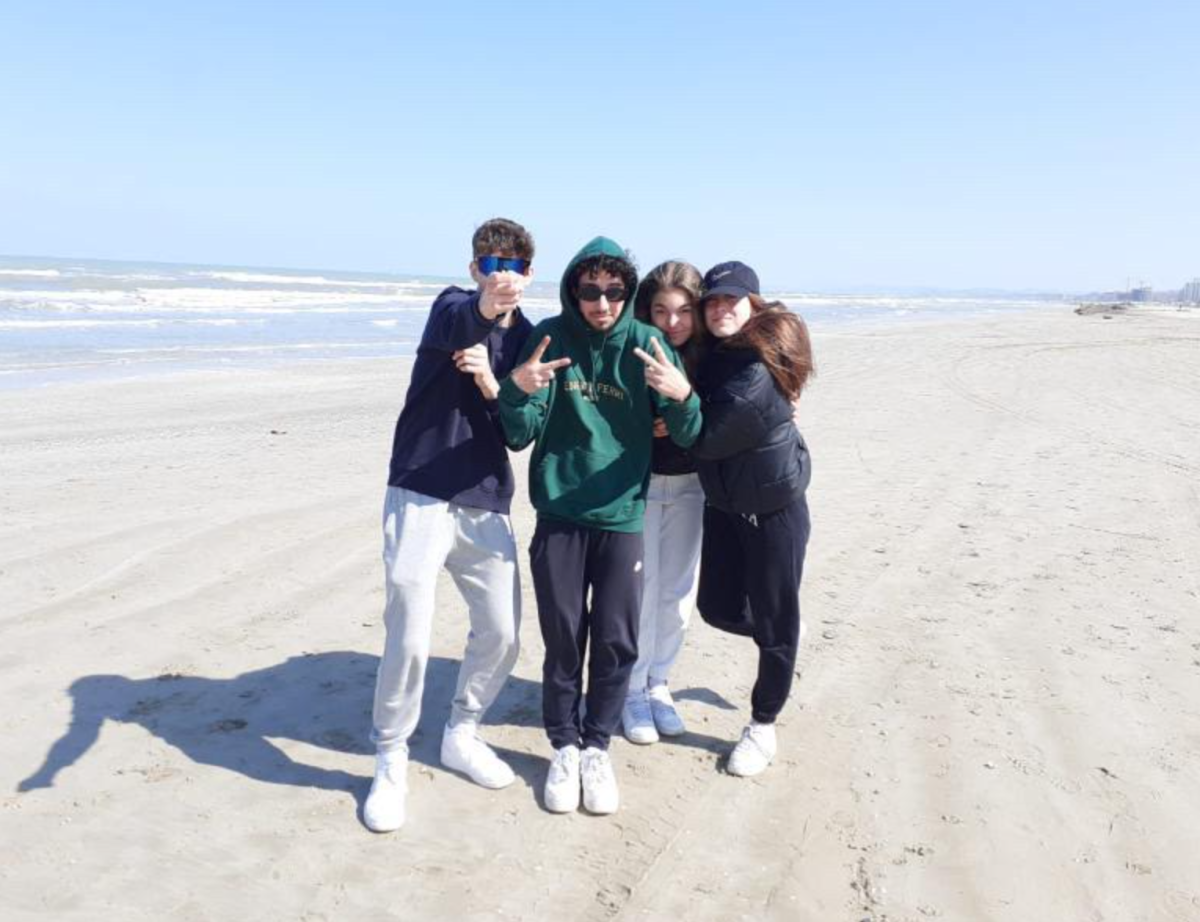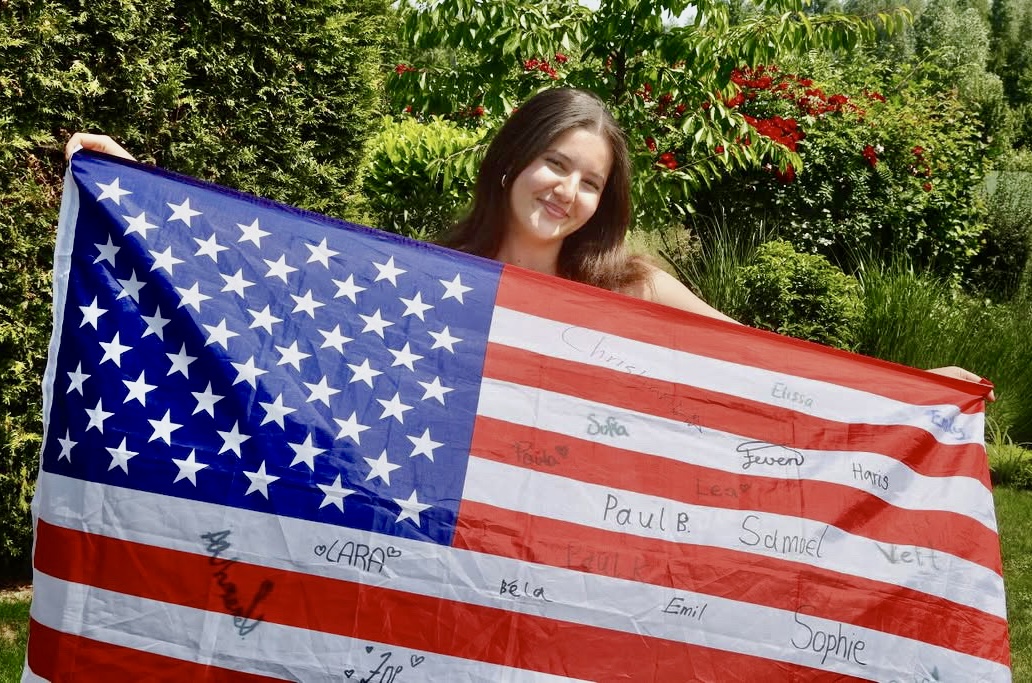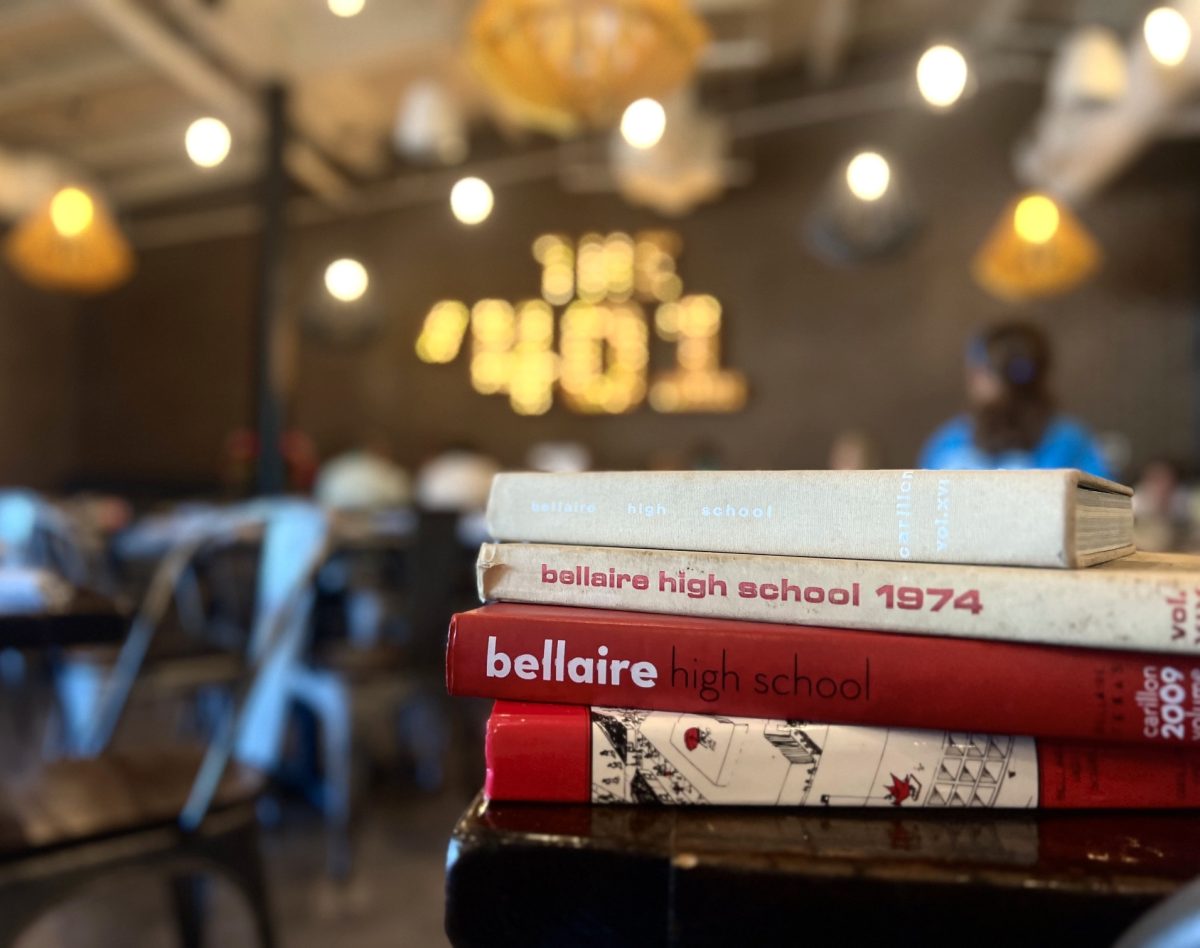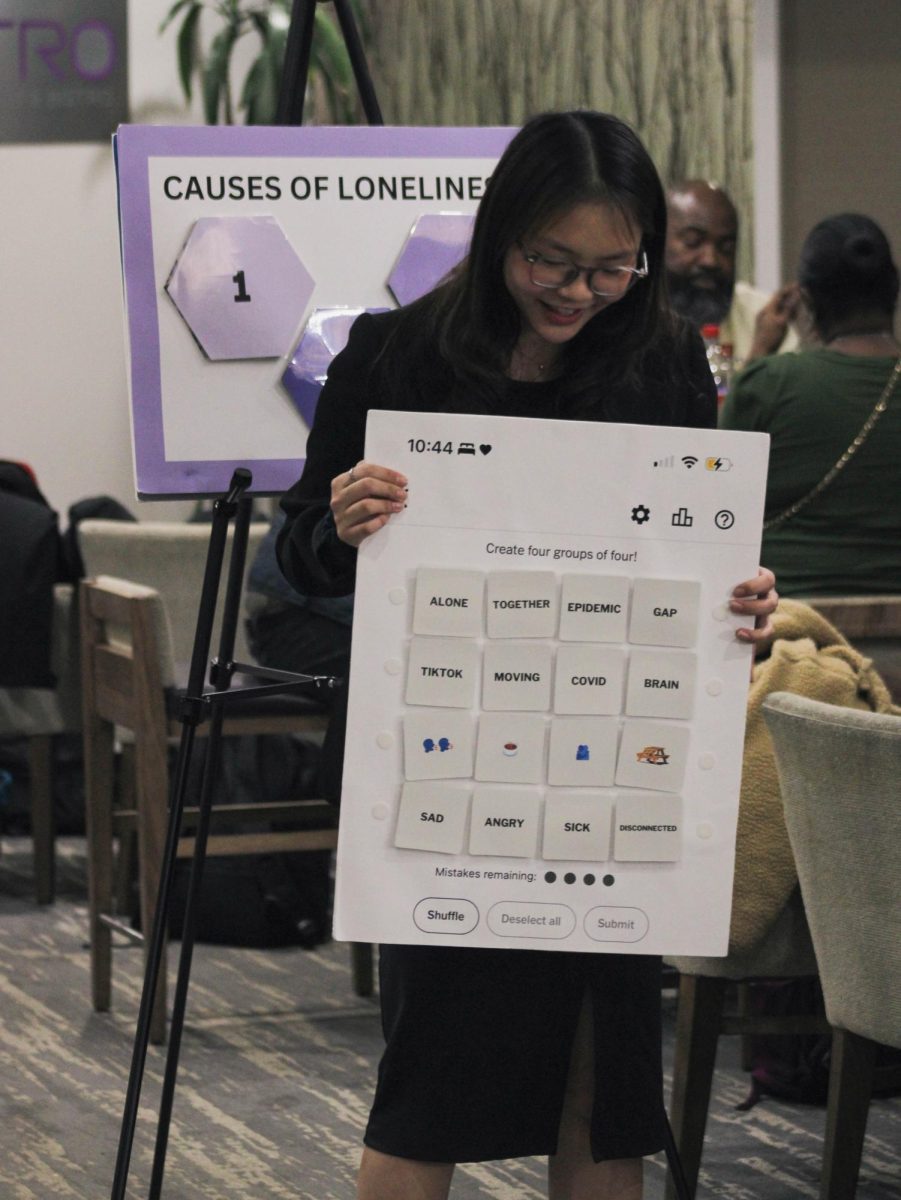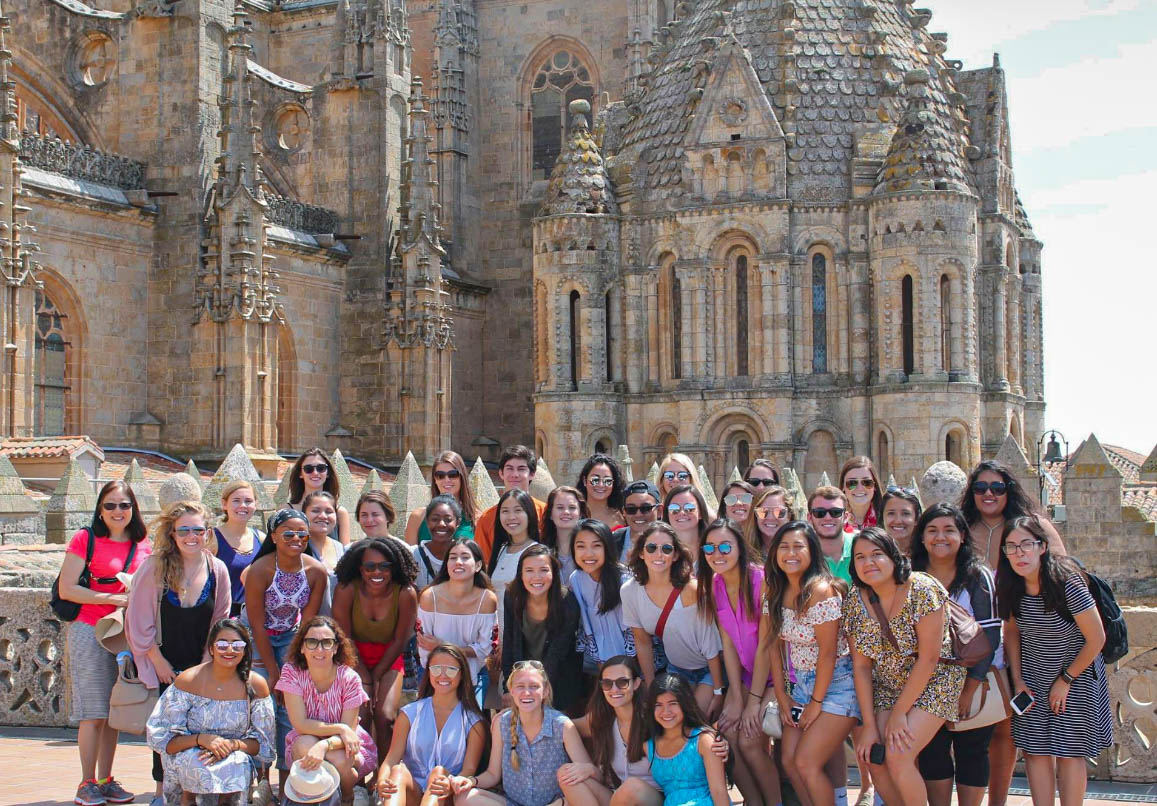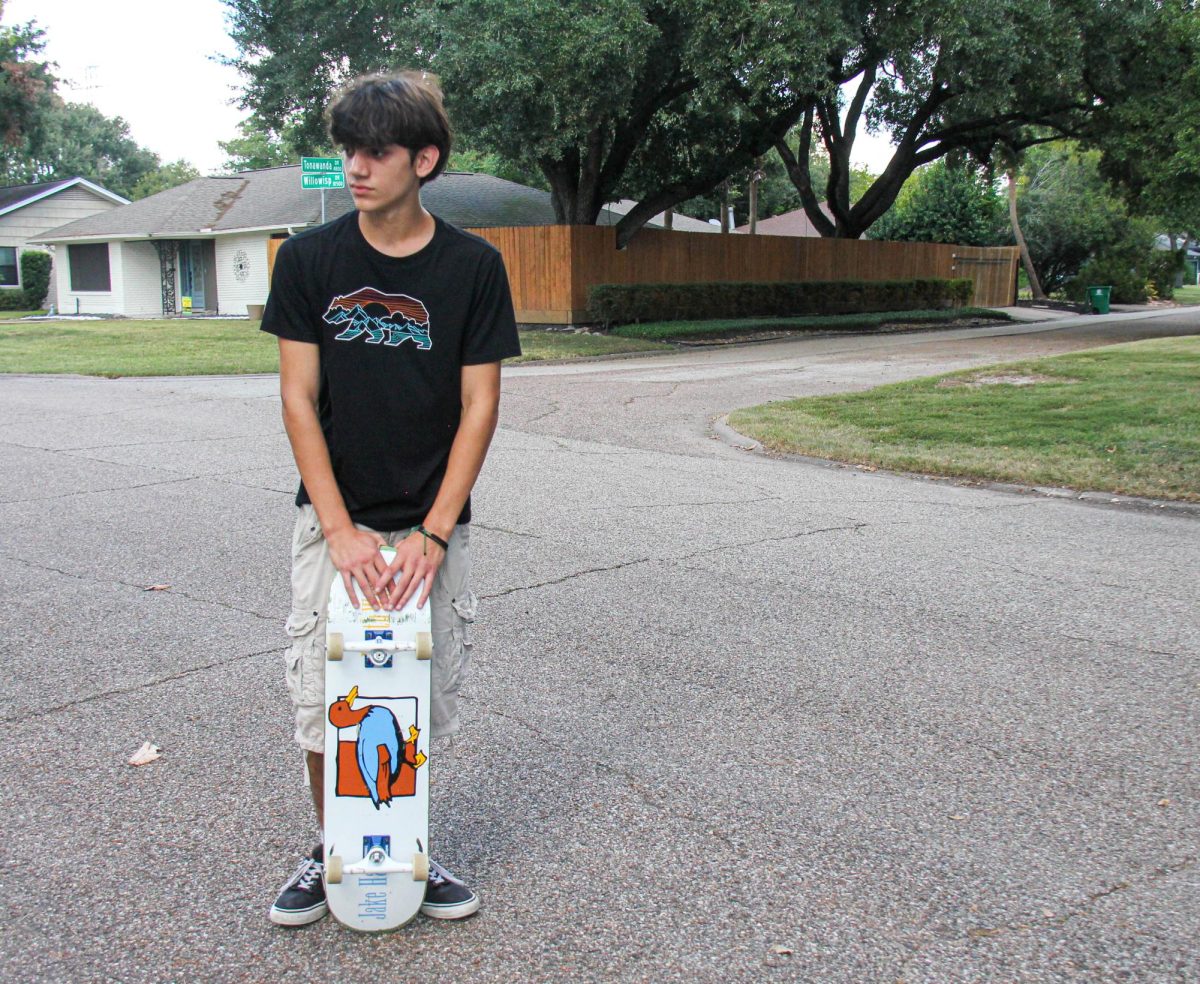5,539 miles across the world, senior Linda Quarti packed her entire life into one suitcase.
Excitement, anticipation, and anxiousness were all she felt as her father, brother Lucas, and she boarded the flight from Bologna, Italy, to Houston — their foreign home for the next few years.
It all started in the summer of 2022 when Quarti’s parents sat her down and decided to improve her English by educating her in the U.S. Although this was a huge change, Quarti was not fazed.
“Since I was little, my parents [had] wanted to send me to study in an English-speaking country,” Quarti said. “So I expected it for a while.”
The process was difficult because Quarti and her family had to apply for a visa, which took six months. However, it was worth it because it would provide her brother and Quarti with an American education and help her father get a job.
But moving to Houston was not without its hardships.
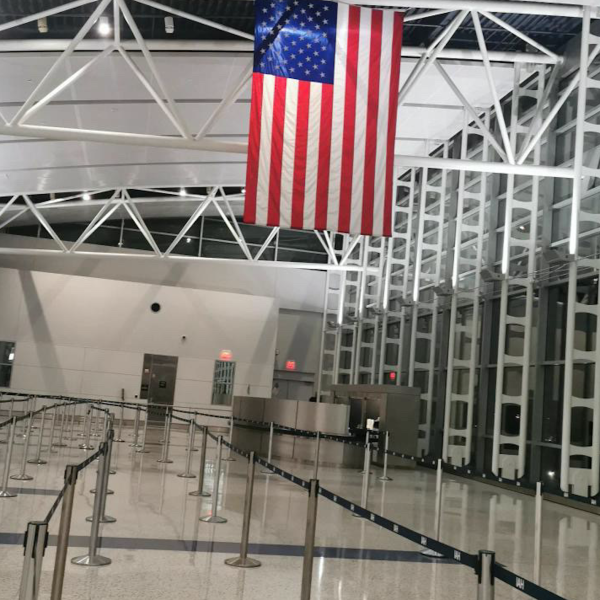
On the first day of school, Quarti felt overwhelmingly isolated walking into the crowded halls of Bellaire.
“The first day was the worst one because I felt completely alone,” Quarti said. “ I mean, I was in this school with nobody. People spoke different languages that I didn’t know.”
The unfamiliar, cold, modern architecture and mile-long hallways with a splash of red and a cardinal bird at every corner were so unlike the old classic halls of Quarti’s classrooms in Italy. But the architecture was just the beginning of the surprises she encountered at her new school.
Thrown into the bustling culture of American high school, Quarti began to realize the stark differences between her school in Italy and Bellaire.
“There are so many differences from Italy,” she said. “The ones that certainly left me most amazed are the fact that you change classrooms and your classmates every hour. At home, we have fixed classmates and classes.”
In Bologna, Italy, high school is five years instead of four, and students apply to a school based on the subject they will specialize in. For example, from as young as age 13, students will have to decide whether to apply to a linguistic, scientific, or even tourism-oriented high school.
In Quarti’s case, she chose to study science. At her school in Italy, Liceo Ginnasio Luigi Galvani, Quarti studied math, chemistry, physics, and biology. Taking these and six other courses, she felt the heavy weight of academic pressure.
“In Italy, I lived only for school because, unfortunately, the Italian school system is very demanding,” she said. “You have 12 subjects a year, all year round, and I found myself studying even eight hours daily.”
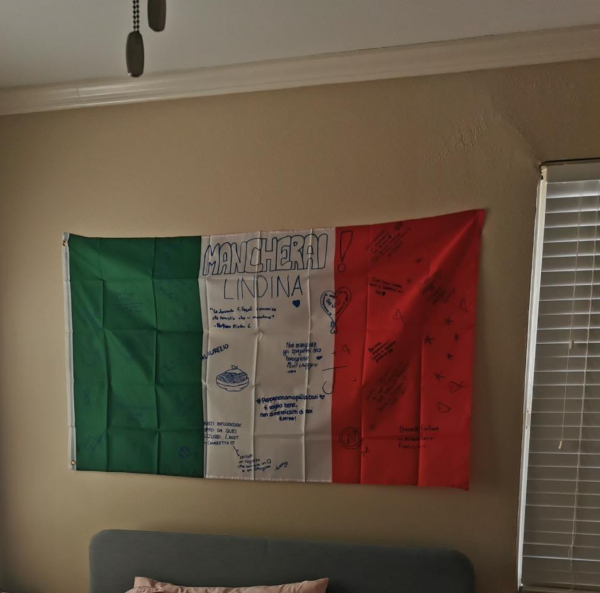
Although school in Italy begins at 8 a.m. and ends around 1:30 p.m., giving students more free time, Quarti found the environment much less overwhelming at Bellaire.
“Here, I have time to devote to myself,” Quarti said. “I’ve been able to do many more things and enjoy my high school years more. I don’t study much, but I have good grades. Certainly, the most difficult subject is AP U.S. History because I still struggle to understand everything in class.”
Along with more time to immerse herself in the high-school experience, Quarti found American sports an interesting distinction from recreation in Italy.
“Sports here are very, very important,” She said. “You have teams for every sport. In Italy, no. If you go to school, you can’t practice sports because you have to focus on school. So here you have to have a party for sports and football games. I really liked this, but it is strange for me.”
However, with the longer schedule at Bellaire, Quarti had difficulty adapting to the longer class periods and lunchtime at school.
“Here, you have to stay at school until 4, but I want to return home and eat my lunch,” Quarti said. “I don’t want to stay at school because then I have to return home and do my homework. I was not used to this. [In Italy] we eat dinner at 9 p.m., and everyone goes out, so the roads are full of people very late at night [in Italy] after dinner. Here, you have to go to sleep at 9 because nobody goes out.”
Another thing she found strange was the close-knit bonds between teachers and students that she witnessed.
“The teachers here are also not strict,” Quarti said. “I really like the relationship that is established between student and teacher. In Italy, the teacher does not help the student; if you have difficulties, you must face them alone. I was lucky because all the teachers I met tried to help me, and I have to say a huge thank you to Ms. Srouji, who, despite my terrible performances in history, has always made me feel welcomed and never wrong.”
In order to help Quarti adjust comfortably to the challenging course, AP U.S. History teacher Grace Srouji offered translators and extended time for her student to succeed to the best of her ability.
“She’s wonderful,” Srouji said. “She’s very kind. She is hardworking. She wants to make sure her work is impeccable. She does such a great job turning in her work. She is always kind when I see her with classmates.”
Despite the fact Bellaire introduced many exciting activities and new relationships for Quart, she still had to learn how to cope with feelings of loneliness at the same time.
“It’s an experience that changes you a lot,” she said. “You learn to be alone, to take care of yourself on your own without always feeling the need to lean on someone, to walk on your own two feet, and to think with your head. You learn to try and not to give up.”
“I know I’m not alone,” Quarti said. “I have family and friends who, even if they call me from Italy, ask me and make sure I don’t forget them.”


